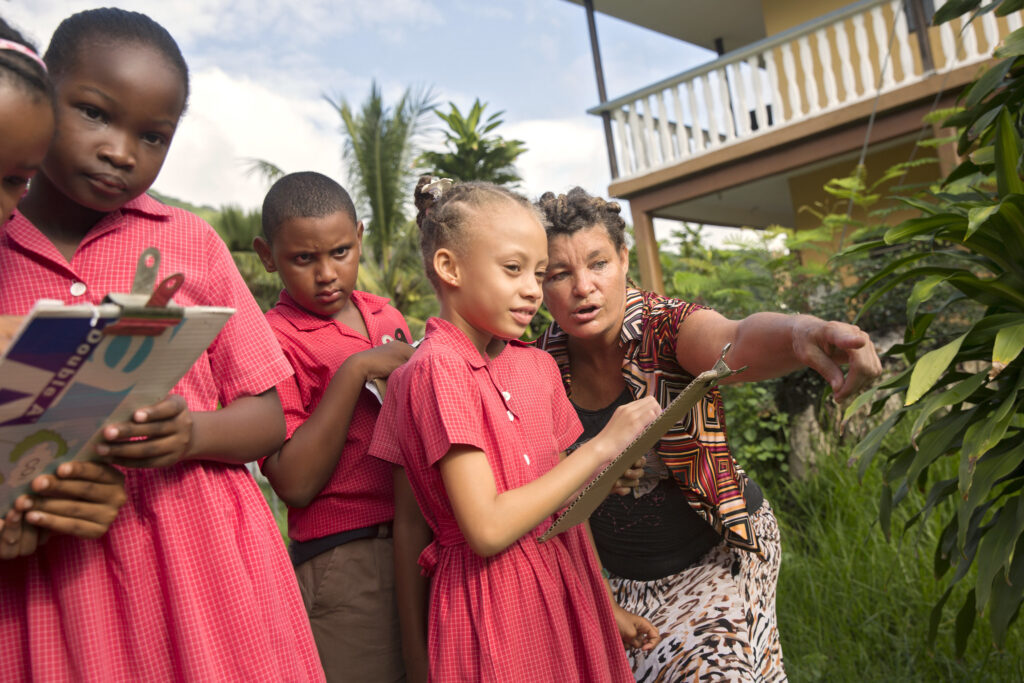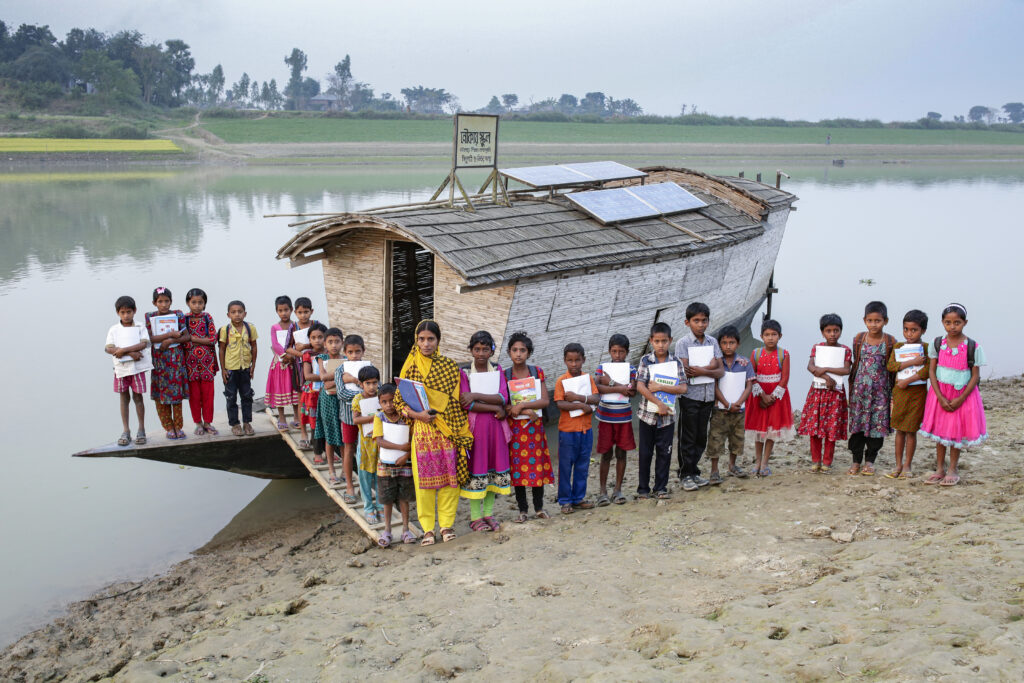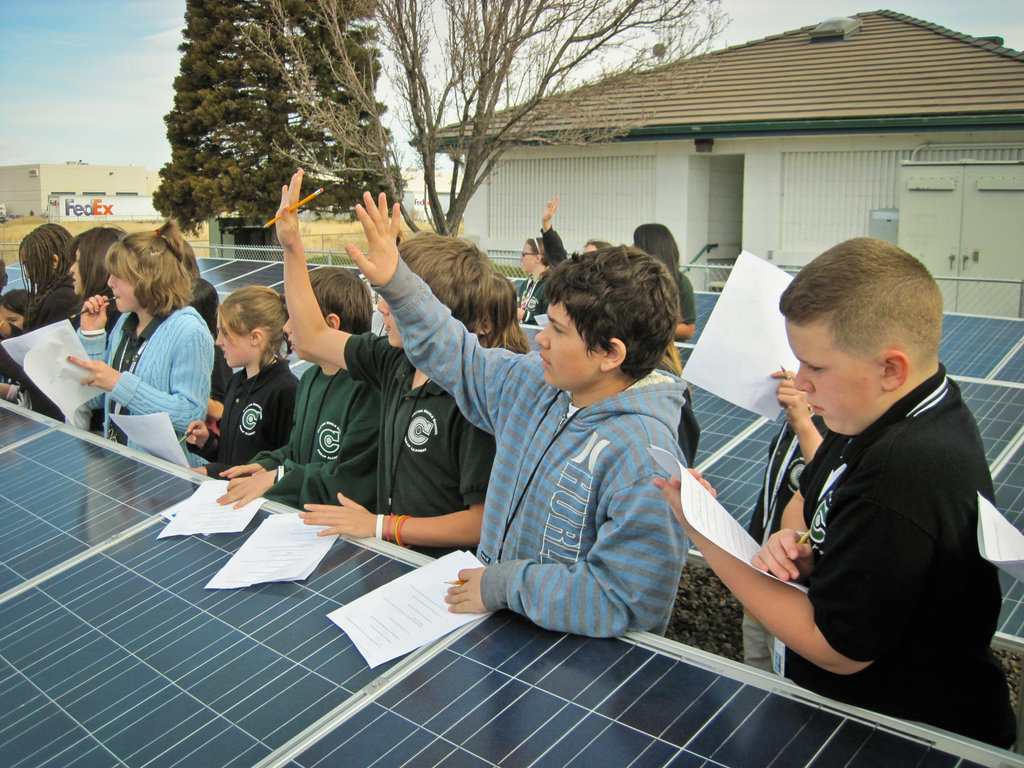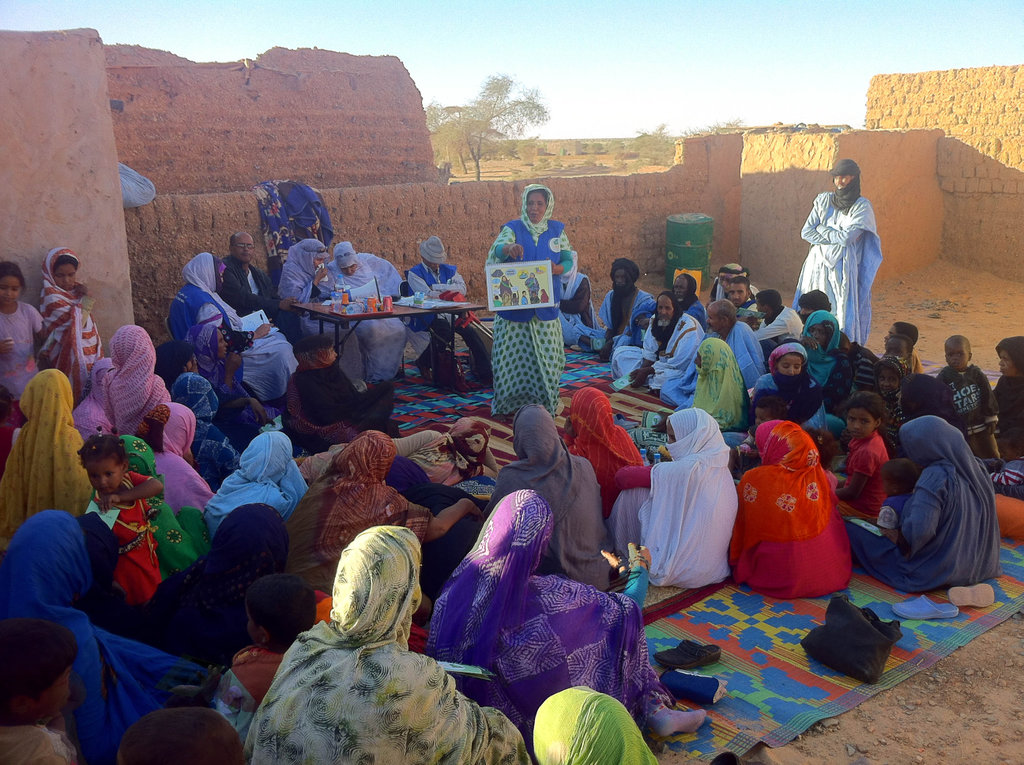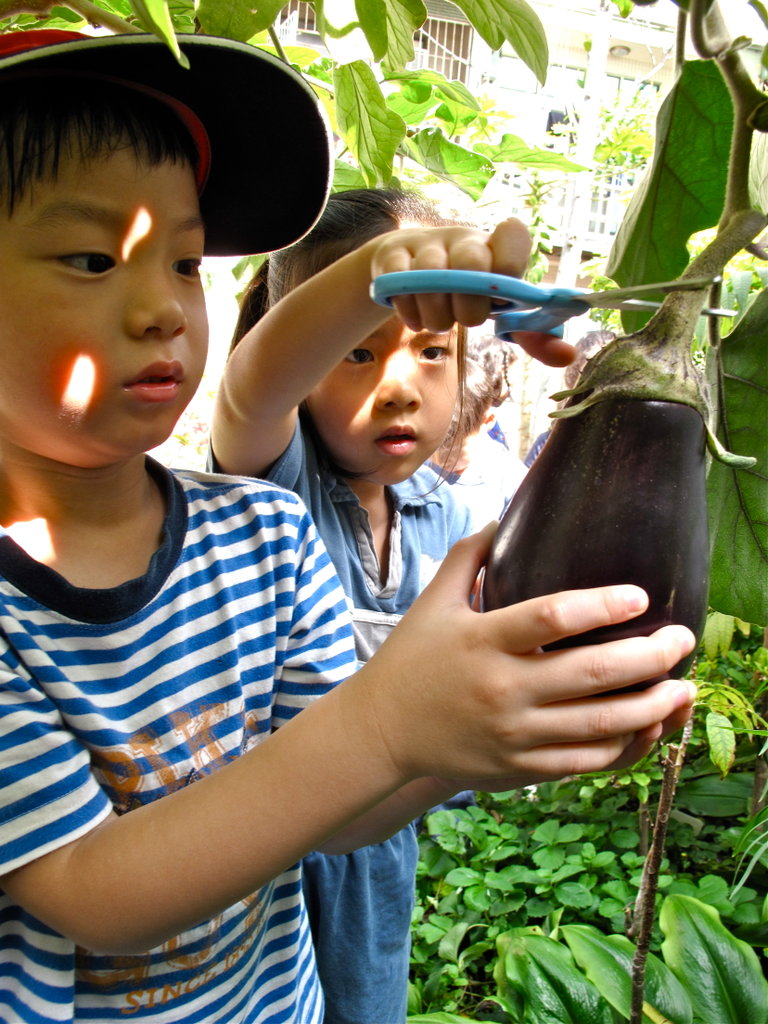Anna Cristina D’Addio and Daniel April, Global Education Monitoring (GEM) Report & Marcia McKenzie, Nicola Chopin, and Stefanie Mallow, MECCE Project

Country profiles respond to the need for better data on CCE progress
What do the profiles suggest about climate change communication and education?
The two teams developed 31 measures to assess progress in CCE. The figure below reports on 18 of those.

Several positive trends emerge in:
Climate change education…
- Countries have made great strides in mainstreaming climate change in curricula at all education levels. The United States, one of the first countries to adopt a Climate Change Education Act (2021), aims to establish a federal CCE programme to enhance CCE literacy across the country. In Zambia, the National Climate Change Learning Strategy (2021) commits to integrating climate change in learning and teaching materials from early childhood care and education to secondary school.
- Only a few countries integrate socio-emotional learning on climate change into primary and secondary education. China does so through the Guidelines for the Implementation of Environment Education in Primary and Secondary Schools (2003). Yet, several countries promote experiential learning. For instance, Ghana’s National Pre-Tertiary Education Curriculum Framework (2018) encourages learners to take climate actions that foster sustainable growth and development.
- Countries are increasingly embracing the transition to green and sustainable schools, for instance through the Eco-Schools programme, which is now implemented in more than 43,000 schools around the world.
- Teacher training on climate change is gaining momentum, such as in Cambodia, where the Ministry of Education, Youth and Sports established modules to help teachers integrate climate change in formal and non-formal curricula.
- Climate change training at the tertiary level and capacity building, particularly in TVET, are also becoming increasingly important. This is the case in Maldives, where the Communication Strategy and Action Plan(2019-2023) aims to train various target audiences, including SDG lead agencies, youth, farmers, fishermen, women’s groups, residents and government authorities.
And climate change communication…
- Countries are using innovative approaches to improve public awareness, access to information and participation. They also increasingly focus CCE policies, plans, strategies and activities on Indigenous participation and knowledge and gender. Australia, for example, emphasises Indigenous knowledge in its National Climate Resilience and Adaptation Strategy (2021), while Canada relies on the expertise of the Expert Panel on Climate Change Adaptation and Resilience established in 2017 to combine scientific information and Indigenous knowledge in climate solutions and communications. The Mexican government also encourages the inclusion of gender issues in climate change debates as well as the active participation of Indigenous peoples. The Special Climate Change Programme (2020–2024) aims to improve gender equality and reduce social gaps through empowerment measures. Lithuania established a Mobile Climate Museum to motivate the youth/public to engage in climate politics and climate-friendly lifestyles.
Yet despite progress being underway, more remains to be done
- Budget allocations for CCE are scarce. Only a few countries, such as Cambodia, Ethiopia, Portugal and Zambia have publicly available CCE budgets. In Zambia, for instance, USD 200,000 has been allocated by the government to increase climate change awareness in general education from 2021 to 2024 while USD 1.5 million has been earmarked to integrate climate change learning into national priority sectoral policies and systems.
- While countries generally have ambitious plans for monitoring, evaluation and reporting on CCE, only a few countries collect data to track CCE progress.
More attention needs to be paid to include CCE
Countries are increasingly including a focus on climate change communication and education in their national policies, plans, and initiatives. Still, few are doing enough to educate their populations about future challenges and the need to act now. More attention needs to be paid to include CCE in national climate change laws, policies, and plans and to develop comprehensive monitoring and evaluation systems to ensure that climate change communication and education reaches all.
In the coming weeks, the Technical Cooperation Group on SDG 4 Indicators will be considering options for a new benchmark indicator to reflect the global initiative on greening education that emerged at the Transforming Education Summit. Once approved, countries would be invited to set national targets for 2025 and 2030 to put this issue at the heart of Agenda 2030. The MECCE Project has launched a first slate of global monitoring tools to support additional country benchmarking and target setting on CCE. The next set of country profiles, to be published ahead of COP 28 in 2023, will expand the knowledge base to help increase the quality of CCE globally.
* The 50 country profiles are available at www.education-profiles.org and www.mecce.ca and cover: Argentina, Australia, Azerbaijan, Bangladesh, Colombia, Brazil, Cambodia, Canada, China, Cook Islands, Costa Rica, Dominican Republic, Ecuador, Egypt, Ethiopia, Gambia, Germany (under review), Ghana, India, Indonesia, Italy, Japan, Jordan, Kenya, Kyrgyzstan, Lebanon, Lithuania, Maldives, Malta, Mexico, Morocco, Myanmar, Namibia, Nauru, New Zealand, Pakistan, Portugal, Qatar, Republic of Korea, Rwanda, Saint Lucia, South Africa, Sweden, Tajikistan, Trinidad and Tobago, Tuvalu, United States of America, Viet Nam, Zimbabwe and Zambia.
About the Authors

Anna Cristina D’addio is an Economist by background. She holds two PhDs: one in Quantitative Economics (European Doctoral Program) from CORE and IRES at the Catholic University of Louvain-la-Neuve (Belgium), and the other in Public Economics from the University of Pavia (Italy). She leads the thematic work and is the gender focal point. Prior to this position, Anna worked at the OECD for more than 12 years on a comprehensive list of issues with a particular emphasis on the role of policies. Before that Anna was a research professor in micro-econometrics applied to labour market/education issues.

Daniel April is the coordinator of the Profiles Enhancing Education Reviews (PEER) and works on teacher issues. He has also worked as an academic director, French as a second language teacher and research associate. Daniel holds a PhD degree in educational administration and policy studies.

Marcia McKenzie is Professor in Global Studies and International Education in MGSE at the University of Melbourne, Australia; and Professor on leave at the University of Saskatchewan, Canada. She is a member of the Royal Society of Canada’s College of New Scholars, Artists, and Scientists; and Director of the Monitoring and Evaluating Climate Communication and Education (MECCE) Project and of the Sustainability and Education Policy Network. Her research program includes both theoretical and applied components at the intersections of comparative and international education, global education policy research, and climate and sustainability education, including in relation to policy mobility, place, affect, and other areas of social and geographic study.

Nicola Chopin is the Project Manager for the MECCE Project and its host, the Sustainability and Education Policy Network (SEPN). In this capacity she has and continues to contribute to numerous UNESCO, SEPN, and MECCE Project reports. Ms. Chopin also led planning for the 2019 Annual Conference of the Canadian Network for Communication and Environmental Education (EECOM), the first national conference in Canada to focus on climate change education. Her research interests include evaluation, monitoring, large-scale research management, and community-university partnerships.

Stefanie Mallow is a MECCE Project Research Associate. She coordinates the development of the Project’s country profiles and indicators related to public awareness, public access to information, and public participation. Originally from Germany, she has worked and lived around the globe. She holds a master’s degree in Cultural Anthropology from Uppsala University in Sweden, worked for two years as programme officer for MECCE Partner Organization, the International Association of Universities (IAU) in France, and began a PhD programme at the University of Costa Rica focusing on power relations and inequality in knowledge production in 2020.
